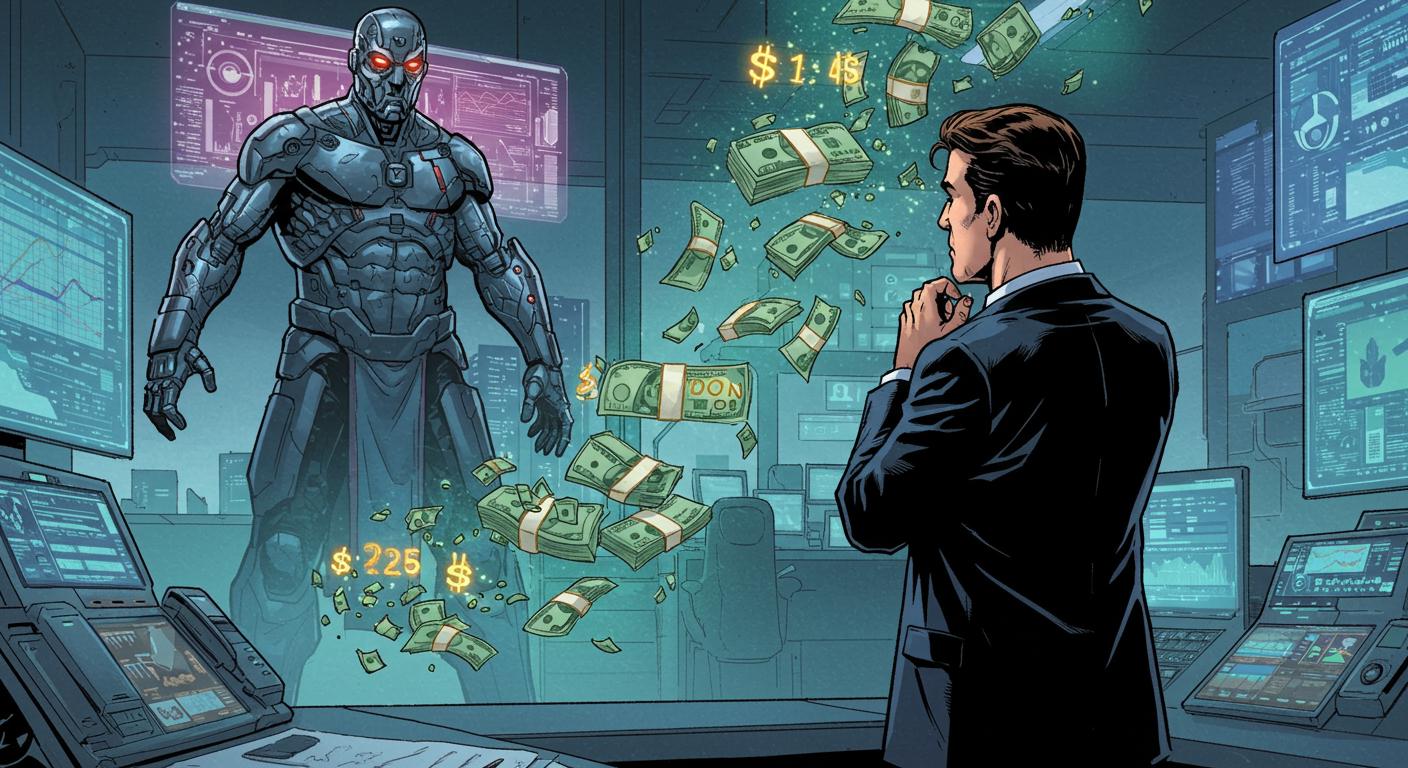Sometimes you stumble across a story that feels like a fever dream concocted by a bored futurist and a particularly excitable accountant. Case in point: Tom’s Hardware reports that Meta tried to land an AI specialist with a $1.25 billion contract spanning four years, and the response was apparently a polite—or perhaps just bemused—”No thanks.” Yes, that’s $312 million a year for showing up, presumably with the expectation of doing some very sophisticated math.
The World’s Most Expensive “No Thanks”
Daniel Francis—Abel’s founder, notorious for both his AI ventures and the odd internet hoax—revealed on X (as relayed by Tom’s Hardware) that Meta dangled the billion-dollar-plus carrot in front of an unnamed candidate, who still declined. The tale, already bordering on Greek myth levels of improbability, was quickly met with incredulity across social channels. Francis himself, sparing any sugarcoating, seemed as mystified as the rest of us, summarizing, “Person said no, btw.” The plot thickened when Francis added, in response to a follower, that “IP is in people’s heads [right now],” suggesting that, in today’s AI gold rush, it’s not companies but individuals who hold the real power (and leverage).
It does prompt a curious thought experiment: under what circumstances does one decide that a salary large enough to fund a small lunar base just isn’t enough? Perhaps there’s a new taxonomy of workplace deal-breakers among the AI elite. Maybe “too many meetings” hits different when they’re intergalactic in scale.
Are AI Brains Priceless, or Has the Bubble Burst Its Banks?
Putting aside the “how many monogrammed yachts fit in a four-year contract” calculations, a bit more skepticism might be warranted. Francis’s announcement attracted its own Greek chorus of commentators—some sincere, others competing for tallest tale. Notably, Tom’s Hardware details how veteran AI researcher Roon (believed to have OpenAI credentials) weighed in, stating that such blockbuster offers aren’t so wild in the era of acquihires, where corporations aren’t just hiring a person but effectively absorbing a walking, talking vault of intellectual property.
If that isn’t enough to warp your sense of salary relativity, the report goes on to mention that OpenAI CEO Sam Altman recently disclosed Meta’s attempts to woo his top technical talent with $100 million signing bonuses. Altman, in a fashion equal parts relieved and mildly smug, noted that none of his “best people” had been swayed—at least not as of last month.
For added flavor, Tom’s Hardware also points out that even offers in the low seven figures haven’t been enough to keep some AI hires in the fold. It’s an arms race powered less by software patents and more by what’s locked inside a single brain. A fascinating paradox: as the world spends billions to teach machines to think, the thinkers themselves are apparently irreplaceable—for at least a few more news cycles.
Satirical Surreality or New Normal?
Unsurprisingly, the reaction to Francis’s post and the ensuing thread quickly unmoored itself from reality. While a couple of self-described insiders confirmed that $1.25 billion deals are “regular” in certain rarefied circles (Tom’s Hardware observed), the conversation swiftly devolved into a send-up of escalating one-upmanship, each response seemingly trying to out-fantasy the last. Some skepticism wouldn’t be out of place here; even the original coverage suggests taking these tales with a healthy dose of salt. There’s a certain poetry in watching a hype cycle turn into theater, almost as if the absurdity is now baked into the business plan.
This all brings us back to a familiar question: Is anyone actually “worth” this kind of payout—outside Powerball winners and people who already have Wikipedia pages for their brains? Or has the calculus of value shifted so dramatically in the race for AI supremacy that one extraordinary person really is the new killer app? It feels like a coin toss between economic rationality and meme economics.
Final Tally: Tech Babel or Bidding War Reality?
At the end of the day, we’re left with a wonderfully strange, mostly-unverifiable yet improbably detailed morsel: someone, somewhere, quietly refused the sort of salary that could probably buy their hometown and still leave cash for a bespoke moon buggy. Maybe for them, the true prize is a problem too interesting to solve, or simply the satisfaction of confounding billionaires.
Alternatively, perhaps we’re watching a collective hallucination, with the job market inflating faster than a physics-defying rubber chicken. The line between the ridiculous and the possible just keeps moving. Is there anyone—or anything—that could truly be indispensable enough for that number? Would you walk away too, or would you at least ask for a fancier coffee machine in the break room? As always, one has to wonder: what’s the real story here—and have we just glimpsed the crest of Peak Absurdity, or are we simply along for the ride?







